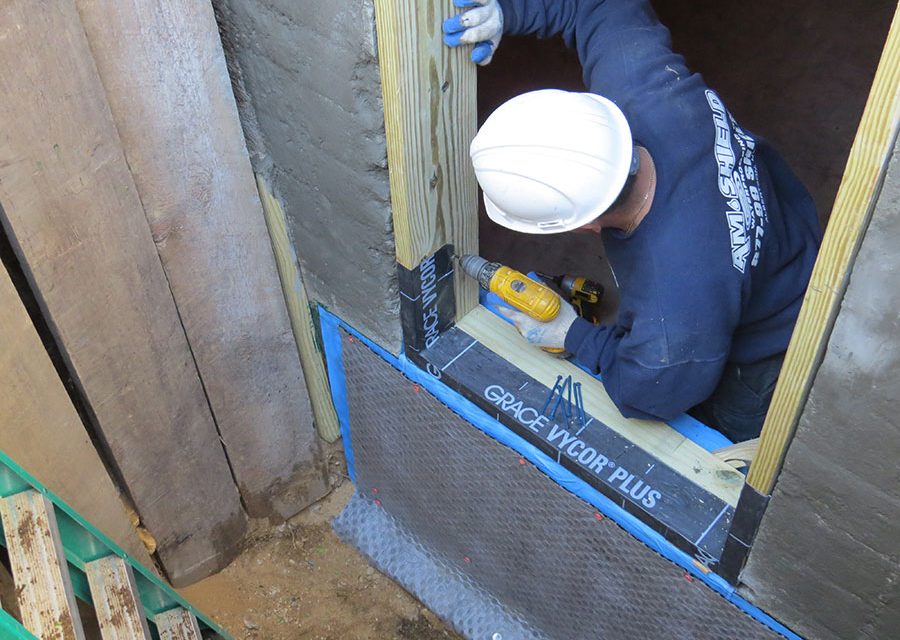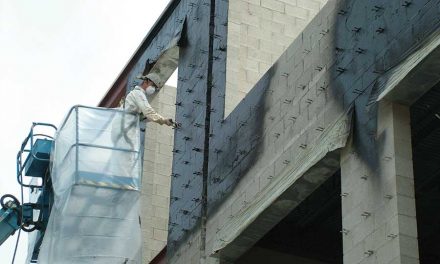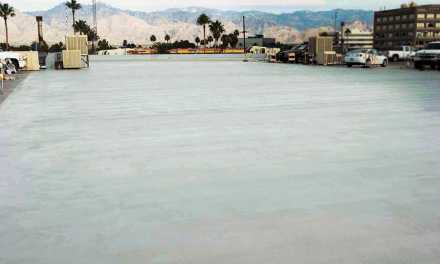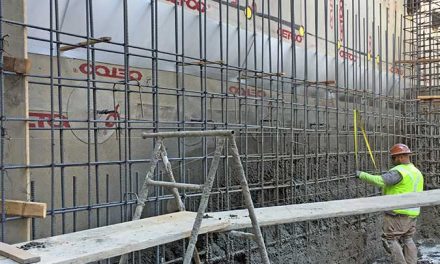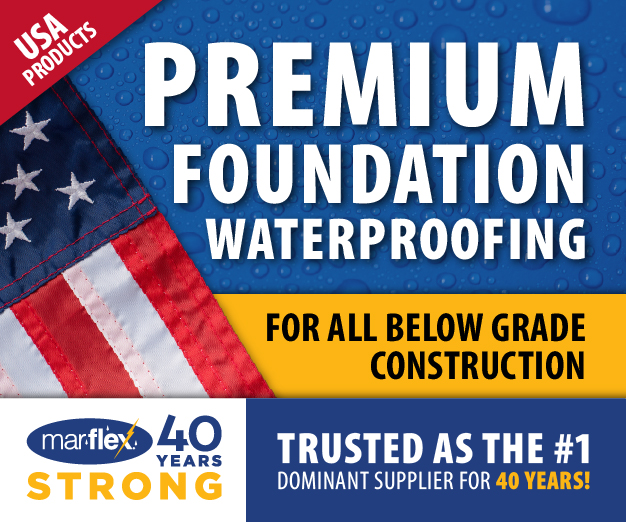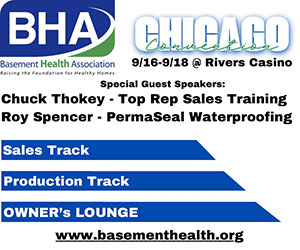By Melissa Morton
On many projects, the quality of waterproofing depends on the quality of the installer. Certification can bring peace of mind to the owner, and additional profits to the contractor.
Those of us in the waterproofing industry understand that there is usually more than one way to do the job and to accomplish the desired end result. Perhaps that’s why the residential waterproofing industry has so little regulation and across-the-board standards. At the same time, it’s also important to ensure that waterproofers and structural repair contractors have a basic level of competency, and know how to use products correctly to solve customers’ problems.
To address these difficulties, most man-ufacturers offer installer training. They insure installers and contractors understand the products, the applications they are best suited for, and how to correctly install them.
Most of the major waterproofing manufacturers also require that contractors undergo additional testing, both on paper and in the field, prior to approving them as “certified installers.” These certified installers tend to get the majority of commercial jobs, since architects insist that products will perform as designed and general contractors want to minimize liability. Even in residential work, building owners want to minimize maintenance hassles, so they favor certified installers. (Nearly all manufacturers require certified installers in order to qualify for warranty coverage.) Certification is especially important for spray-applied products, as the quality of the waterproofing is almost entirely dependent of the skill of the applicator.
Because each manufacturer has a different program, most commercial waterproofers—and a good share of residential contractors as well—end up with a half-dozen or more different certifications on products ranging from sump pumps to carbon fiber reinforcement.
The Basement Health Association also offers a certification program that’s far more general. It doesn’t specify which products and systems to use, but educates contractors on the “whys” of waterproofing instead. It’s the only national certification program for the waterproofing industry that’s conducted by a third-party. Mike Trotter, retired owner of Trotter Company in Atlanta, Georgia, says the third-party accreditation eliminates a conflict of interest. “There is a big difference between taking a test from someone who wants you to buy their products and the association whose goal is education,” he says.
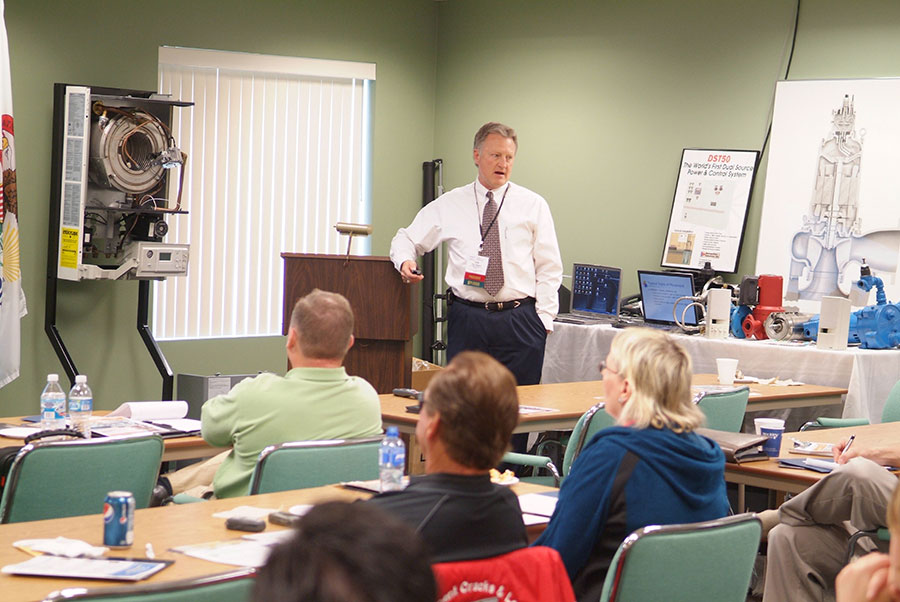
Dan Jaggers conducts a BHA training session during a regional meeting in Chicago. Certifications and training are available from most major manufacturers.
In truth, the manufacturers’ certification goals reach far beyond simply making a sale. Their goal is to ensure their product is used correctly and applied to the appropriate specification, every time. They know poor installation can create warranty problems, ruin a product’s reputation, and lead to devastating lawsuits. So manufacturers training and certification programs are usually quite comprehensive. After all, they know their product better than anyone else.
Still, there is a place for a more general training that reaches across product lines. “The Basement Health Association’s certification program is a more pure certification,” explained Steve Andras, owner of Grate Products and Pioneer Basement in Westport, Mass. “You’re certified by a body of your peers. It is a broader education.”
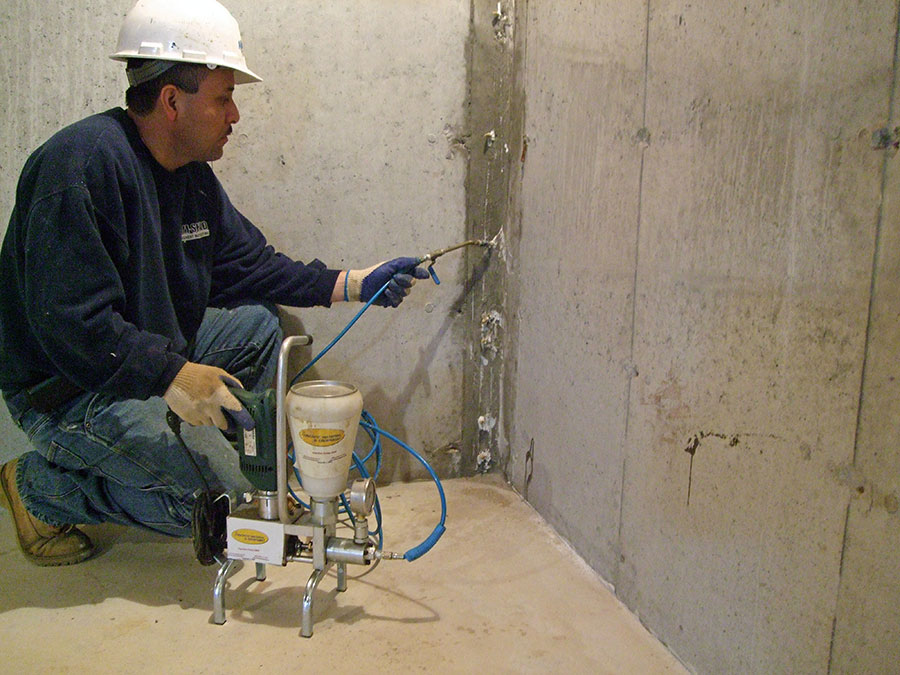
Third-party certification for waterproofers was first offered in 1995, when a trade association began offering a Certified Waterproofing Specialist designation. It did not address product specifics, focusing instead on why and how waterproofing systems work. In 1999, the association added the Certified Structural Repair Specialist certificate. This test addresses the soils, foundations repair, and underpinning.
The Basement Health Association was formed in 1985 as The National Association of Waterproofing Contractors. They launched their national waterproofing certification program ten years later, with the goal of having every member certified. Trotter was given the responsibility to head up a committee and put together a waterproofing certification test. Trotter, along with Alan Chandler of All Dry in Nashville, Tenn., and Carl Moore of Ohio State Waterproofing built a written exam with five sections: history, ethics, safety, techniques and industry standards.
In 1999, the association added structural repair certification when it expanded to include structural repair contractors. It covered epoxies and sealants as well as soils and foundations.
This year, they’ll add Certified Egress Specialist and Certified Crawlspace Specialist designations.
All of the BHA tests are comprehensive affairs that require significant study. “Our test is hard,” Trotter says. “Having a difficult test makes it mean something when someone becomes certified. The vision of the program was to lift our members above the average guy. We wanted to offer our customers a little better contractor, an educated contractor.”
At any given time, approximately 30% of the Basement Health Association membership is certified. Currently it has more than 40 member companies with staff members certified in both waterproofing and structural repair.
Business Advantages
Even though the BHA certification is generic, it usually translates to an immediate increase in business. Sean Worthington, owner of Worthington Waterproofing Systems, certified shortly after joining BHA early last year. He says it’s the most valuable service they offer. “It has revolutionized my business,” he says. Worthington says because of the association, he has been able to take on bigger, more difficult jobs, and solve some nagging problems that have been plaguing him for years. “Whenever I run into a problem, I know I can always pick up the phone and call somebody who might be able to help. Attending the conferences allows you to develop the relationships that make that possible.”
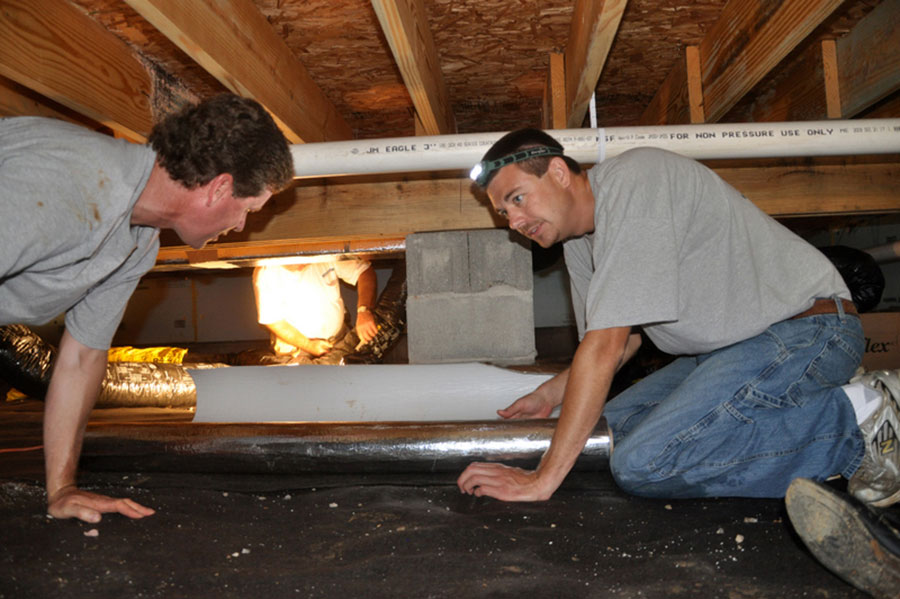
Recently developed certifications, such as the Certified Crawlspace Specialist and Certified Egress Specialist designations from BHA, help contractors stay up-to-date on the latest technology and techniques.
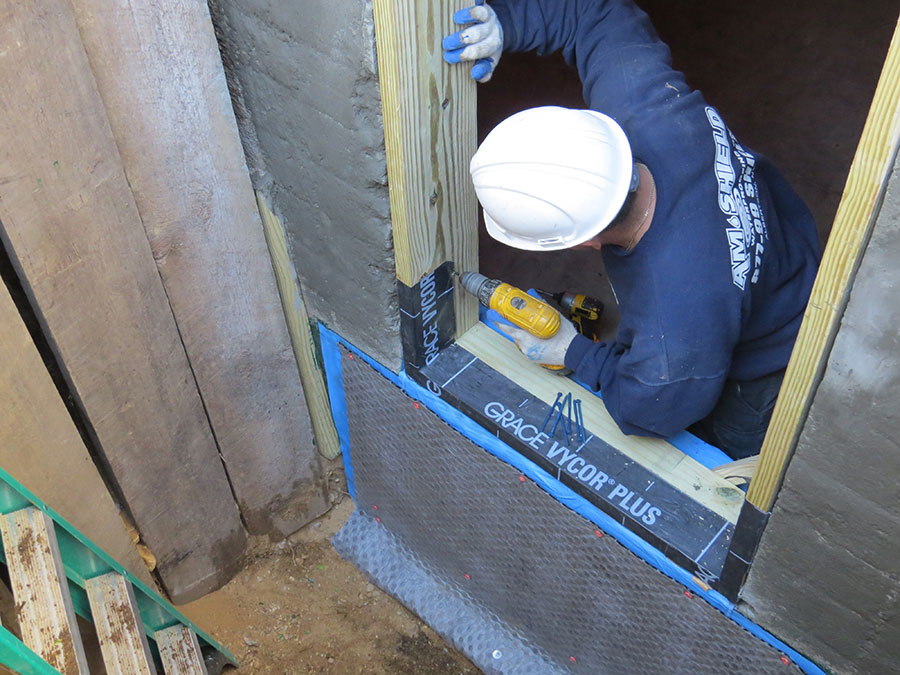
Trotter certified over 30 key employees in his business as soon as the certification became available. “All the sales reps, field supervisors and crew chiefs were certified,” he says. “Every certified person had it embroidered on the shoulder of [his] shirt where everyone could see it. Being certified helps people trust you when they know you have gone the extra step. It provides credibility.”
Chandler, the Nashville waterproofer who helped Trotter design the BHA tests, says the certification program shows customers which contractors have knowledge of their industry.
“Consumers look for certifications and anything to set the competition apart,” he says. “Basically, it is another feather in their hat, another thing to help close the sale,” he says.
Staying Up-To-Date
The waterproofing industry continues to evolve. As manufacturers develop new products and reformulate their product lines, they commonly require their installers to re-certify.
The BHA’s certification program is similar. It incorporates continuing education credits to maintain certification. Certified individuals must attend at least one associationmeeting every two years, where they can attend seminars and learn the latest technology. In total, they must earn 15 continuing education credits every two years by volunteering with the association, writing articles, or delivering presentations. The association is developing webinars and online continued certification courses that can also count toward re-certification.
In addition to the two new certificates this year (Certified Egress Specialist and Certified Crawlspace Specialist), the Basement Health Association hopes to develop certifications for radon and indoor air quality groups as well as pest control and mold remediation.
Melissa Morton is an editor at Basement Health Association. She can be contacted through BHA’s website www.basementhealth.org or www.basementhealthpros.com.
Spring 2014 Back Issue
$4.95
The Importance of Certified Installers
Protected Membrane Roofing
Crystalline Admixtures and LEED
Polymer Rubber Gel Systems
AVAILABLE AS DIGITAL DOWNLOAD ONLY
Description
Description
The Importance of Certified Installers
By Melissa Morton
On many projects, the quality of waterproofing depends on the quality of the installer. Certification can bring peace of mind to the owner, and additional profits to the contractor.
Protected Membrane Roofing
By Dennis Yanez
Protected Membrane Roofing (PMR) has a number of benefits, both from a technical and sustainability standpoint.
Crystalline Admixtures and LEED
Crystalline waterproofing technology has proven particularly suitable for green building. It has been used in many green-build projects, including several that have been certified LEED-Platinum.
Polymer Rubber Gel Systems
This new technology, which incorporates a non-curing, self-sealing polymer gel, makes it easier than ever to confidently waterproof difficult areas. It’s already been used on several landmark products.
Additional Info
Additional information
| Magazine Format | Digital Download Magazine, Print Mailed Magazine |
|---|

